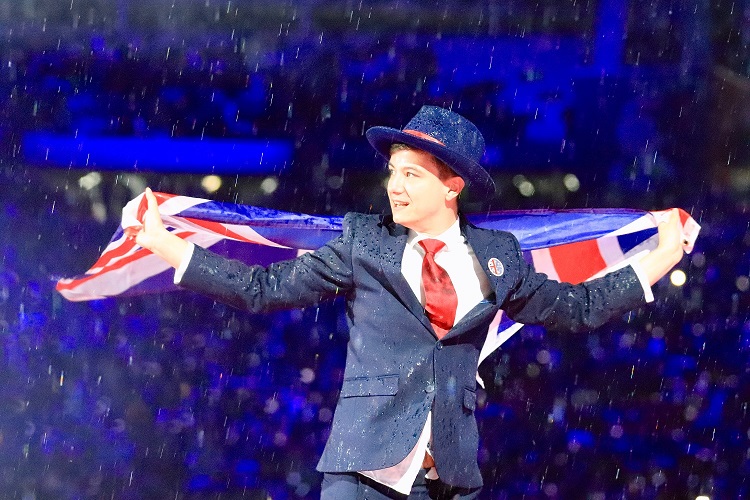
September 13, 2019, by Katie Andrews
Gold standard skills – interview with Aircraft Maintenance champion Haydn Jakes
Engineering student Haydn Jakes became a gold medal winner over Summer, competing for Team UK in the WorldSkills 2019 competition held in Kazan, Russia.
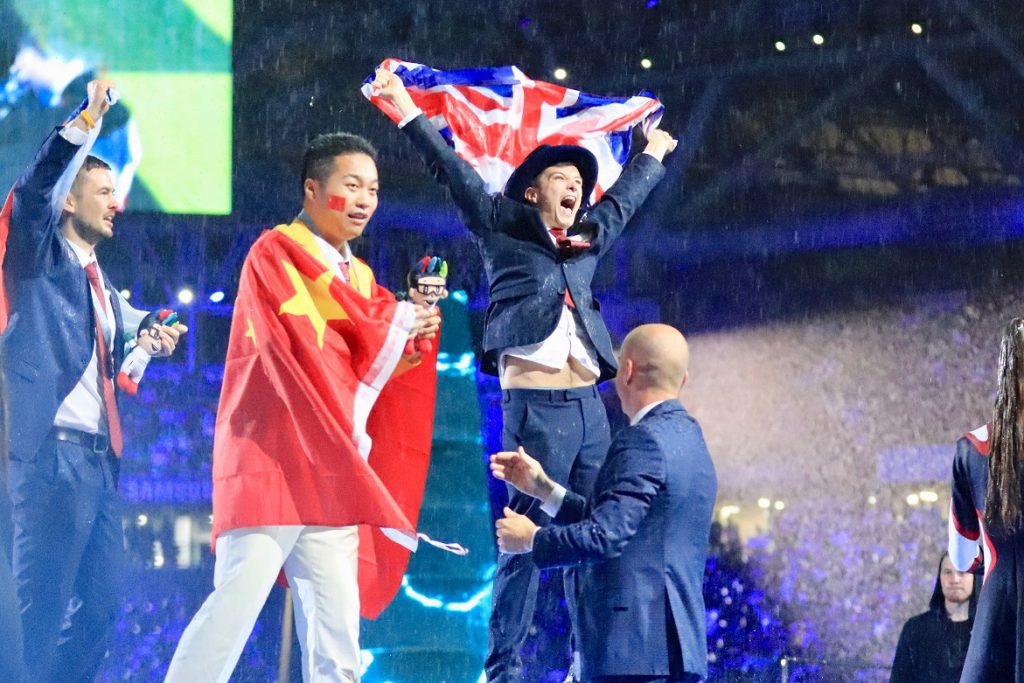
Designed by industry experts, the WorldSkills UK competitions equip apprentices and students with the world-class skills needed to help UK businesses better compete globally. The WorldSkills competition originated after the devastation of World War II led to huge skills shortages. In 1950, the first skills contest was held in Madrid for the youth of Spain and Portugal – from there, the competition grew internationally.
For Haydn, it all began when he was in his last year of an Advanced Apprenticeship at Marshall Aerospace and Defence Group in 2017. Haydn was entered into the WorldSkills National Heats for the ‘Aeronautical Engineering: Mechanical’ skill. He successfully got through the heats to achieve a place on the National Finals where he won Silver. Francisco Albert Vidal was charged with creating a skills contest for the youth of Spain and Portugal to try to plug the skills gap. Madrid 1950 was a modest event by today’s standards but an international movement was born.
He was then selected by WorldSkills UK as one of the top three competitors in this skill to train in SquadUK to go on to compete in Aircraft Maintenance in the international finals in Kazan, representing the UK.
We caught up with the world class aerospace engineering undergraduate to find out how he was feeling now he’s back on UK soil…
First of all, congratulations, Haydn! You’ve beaten the world’s best aerospace apprentices – on top of that, how does it feel to be one of only two UK gold medal winners?
It’s very exciting, everyone in TeamUK worked really hard in their skills, and we knew that the competition was going to be tough, so to have won Gold was a welcome surprise.
What made you want to take part in the WorldSkills competition?
I was entered by my employer MADG in the last year of my apprenticeship. It wasn’t until the National Competitions that the scale of the competition became apparent. And when I was presented with an opportunity to prove that I was the best in the World, I had to take it!
What tasks did you have to do as part of the competition?
In my skill, we had five tasks to complete in total, sheet metal fabrication, aircraft electrical and avionic installation, composite panel damage assessment, mechanical component removal and refit and an aircraft airworthiness check.
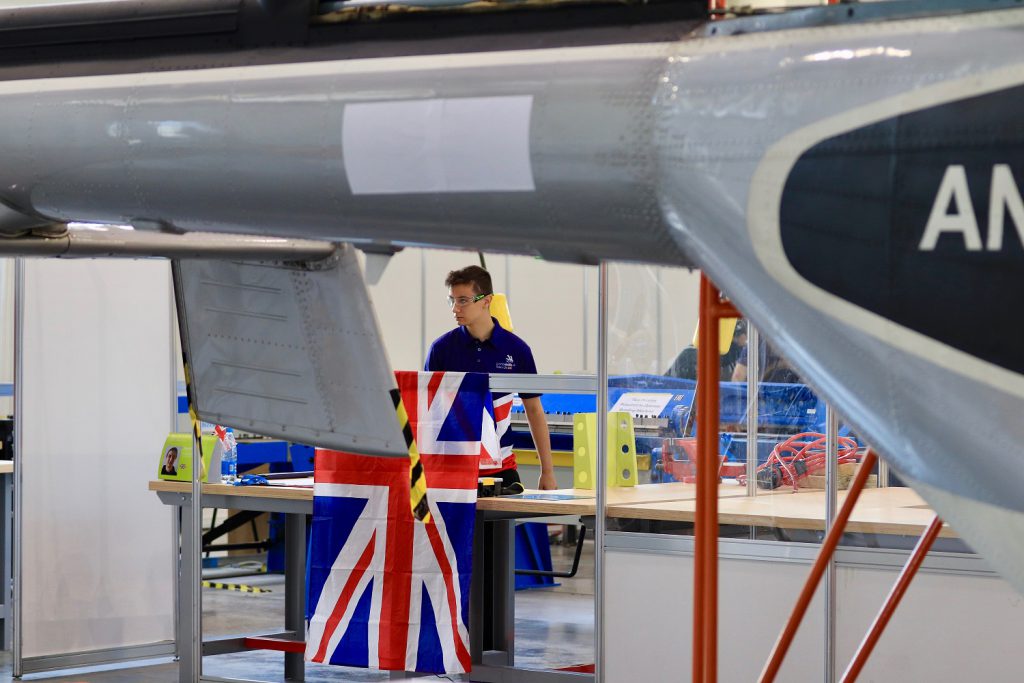
Did you think you would win gold?
It was important to believe that I would win Gold from the moment I decided to start training for the International Finals. If you set your expectations any lower than the best, then that will reflect in your training and also in your competition. However, during the competition I felt that I hadn’t performed as well as I could have, so to win Gold was truly a surprise to me as you can see in the photo! [Photo 1]
How did you prepare for the competition?
As the competition grew closer, the training became more intense. During SquadUK I trained for about 6 weeks at formal training events, as well as occasionally in my spare time. In the weeks leading up to the International Finals, I trained full-time in my own time between formal training events and pressure tests.
During the SquadUK phase, we took part in advanced training courses in our skill to prepare all three of us to compete Internationally, and WorldSkills UK Bootcamp events at Loughborough University to prepare us psychologically for the pressures and stresses of competing. In my case, our training events during SquadUK included advanced sheet metal fabrication and repair with the Royal Navy and aircraft electrical and avionic installation in Finland.
In March 2019, TeamUK selection took place which involved another competition between the top three to determine the best candidate to go forward to represent the UK at the International Finals. TeamUK selection for my skill was held at Nottingham College over a week, with the results being announced at Loughborough University.
Following selection into TeamUK, my Training Manager started to put together a training program to prepare me to compete at the International Finals. Included in that program were two weeks in Brazil to train with their competitor, 10 days in Kazan in May to take part in a friendly competition at their National Finals, as well as more training events held across the country. It became apparent very quickly that I was not going to be able to balance the finals stages of the first year of my degree and training for TeamUK and so decided to take a Voluntary Interruption of Studies. This would allow me to focus all of my energy and attention on my training without having to stress about my exams. It also meant that I would be able to resit the year, most of which I had missed due to being away on Training Events. This decision came with a few sacrifices, including me, still being liable for the tuition fees for the terms I had already attended, as well as having to pay for living costs to stay at University for another year. The biggest sacrifice that came with this decision was that I was not going to be able to apply for my dream career as a Pilot in the Royal Air Force, as I will be too old to apply after graduation.
What was your experience of the competition – what was it like?
The competition was intense, and passed so quickly! As a team, we bonded really well and relied on each other when we all had our inevitable “off day”. The volunteers and local people were very welcoming, and I really enjoyed my experience in Kazan.
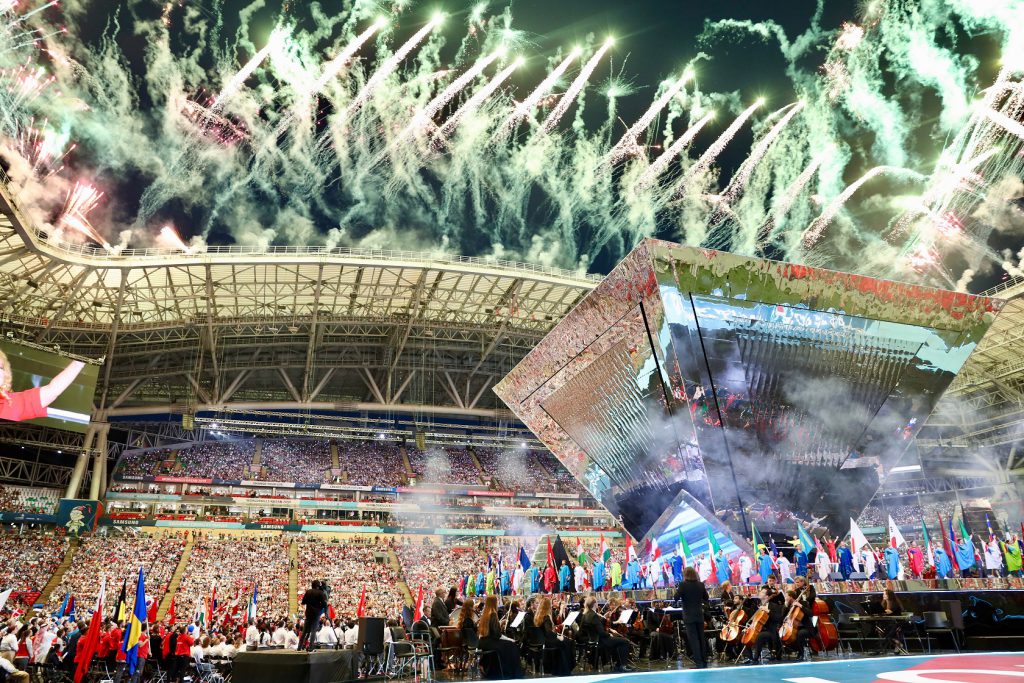
And how long were you in Russia for?
I was in Russia for a total of 10 days for the International Finals, but I visited Kazan earlier in the year to compete in a friendly competition in their National Finals for another 10 days.
Will you compete in the next event?
Unfortunately not. The net event will take place in Shanghai in 2021, and TeamUK competitors get one shot at competing at the International Finals. I will stay involved with WorldSkills and help train the next competitors.
What is next for you?
My degree! I will now resit the first year of my Aerospace Engineering degree, with a total of 4 more to go for my Masters’ Degree. Now that I have finished competing, I can focus all of my energy on my studies.
We wish you the best of luck for the future Haydn!
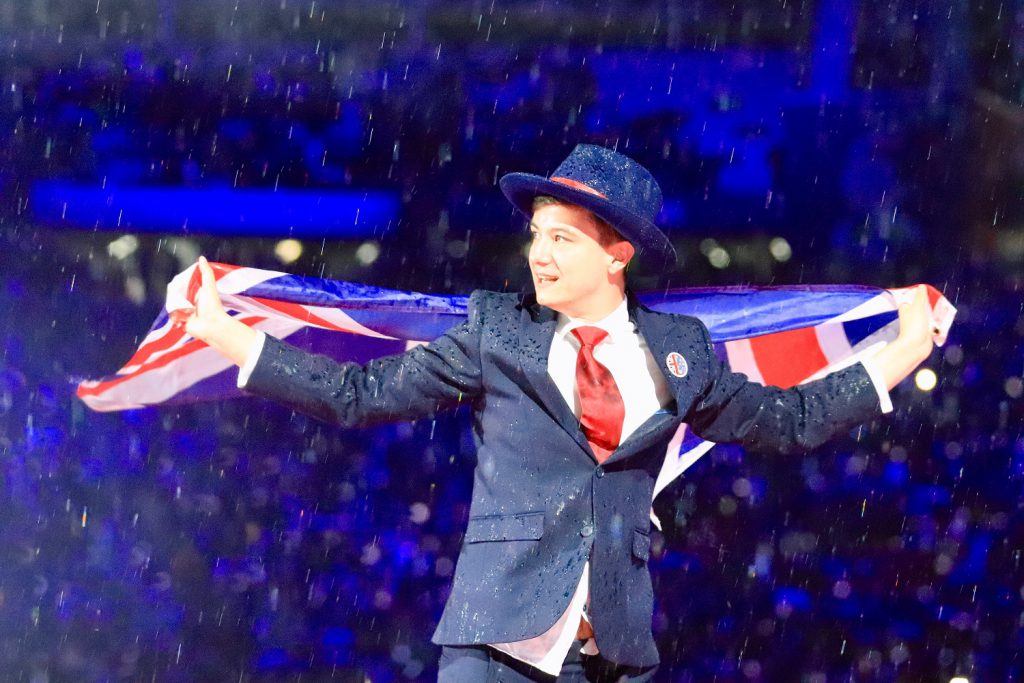
No comments yet, fill out a comment to be the first

Leave a Reply